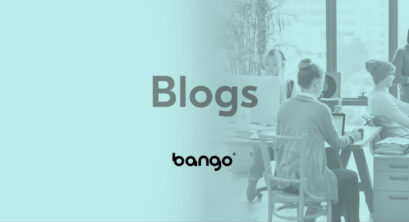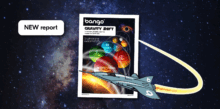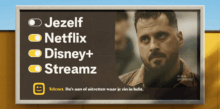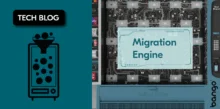Bango Marketplace Q&A
by Sukey Miller

On 11 December, Bango announced the launch of Bango Marketplace to investors. This Q&A is focused on the questions that investors have asked about Bango Marketplace and the Bango data monetization strategy in general.
What is Bango Marketplace?
A new product that increases user acquisition and revenues for app developers and opens new revenue streams for mobile operators.
Why would app developers want to use it?
App developers spend 30% (and sometimes more) of their net app store revenues on marketing, to find new users, increase download and installs, and generate more spending in apps.
Developers generate 5x more revenue from in-app purchases than from in-app advertising, but only about 5% of all users purchase. Finding these users is a “holy grail” of app marketing.
Bango Marketplace enables developers to direct their marketing towards selected customer audiences that are more likely to respond, so their marketing money gets a better return.
How does developer marketing become more effective using Bango Marketplace?
Bango Marketplace displays a range of customer segments that have been found to deliver better returns from marketing activity. For example: “People who spend money on music in Indonesia” or “People who spend a lot on strategy games” or “People who have enabled Direct Carrier Billing”.
From Bango Marketplace, app developers choose customer segments in countries they want to focus on. When they run their marketing campaigns through Google, Facebook, web banner ads or even text messaging, they use the customer segment with their marketing engine, and the engine focuses marketing to users in that segment. The return on the marketing campaign is much higher than a standard campaign that does not use the segment.
Does Bango Marketplace comply with GDPR and other relevant regulations?
Yes. First, all campaigns run by advertisers need to comply with local laws and regulations, whether or not Bango Marketplace is used. Second, mobile operators and other Bango partners manage permissions from the users including opt-outs, updates and rights of exclusion. Third, the major marketing platforms fed with data from Bango (Google, Facebook, Line etc) manage user preferences, opt-outs etc relating to ad placement on their platforms.
How much do app developers pay for segments?
A segment is technically “leased” by Bango to the developer for a limited period and for the specified use. A small segment used for a trial might cost $1,000 for 1 day. A segment of a million valuable users over 1 month might be leased for tens of thousands of dollars. More valuable segments have a higher price. The provider of the segment can define a price, and Bango can support price changes based on segment popularity or effectiveness.
Where do the segments come from?
Mobile operators, payment providers and other businesses that work with Bango for Direct Carrier Billing or for other reasons publish customer segments in Bango Marketplace. Mobile operators that are already integrated with the Bango Platform for carrier billing are automatically able to publish segments without any technical work. Others can simply upgrade their DCB routes to operate through Bango or feed data to the Bango Platform by other means.
Bango provides the technology to prepare and safely unleash the value of their data at scale when they join the Bango powered commerce ecosystem.
What technology is used to create, anonymize, secure and provide access to the customer segments?
Bango has developed in-house technology over the last two years under its Bango Deep project which was announced at the Bango Strategy Day in January 2017. In addition, in January 2018, Bango acquired Audiens SRL, developer of a leading Customer Data Platform (Audiens CDP) and has integrated Audiens technology into Bango systems to create the Bango Marketplace.
Which developers can use Bango Marketplace?
The Bango Marketplace is open to all for window shopping, but all segment buyers need to pass through a verification and vetting process before they can acquire use of segments. Requests for segments are also subject to approval, after Bango verification, by the segment providers – for example when mobile operators are providing the data behind the segments.
How many developers have entered the Bango Marketplace?
By launch, several hundred developers had joined as part of a pre-launch test phase.
Do you have an initial focus on app developers?
Bango is initially focused on app developers that have large marketing budgets and that can provide feedback on the success of their campaigns to Bango to provide feedback to the segmentation technology and techniques.
How many mobile operators are offering segments through Bango Marketplace?
Many mobile operators offered segments during early trials. There are now more than 30 mobile operators feeding data to Bango and able to offer segments. A number of these already have offers live in Bango Marketplace.
How good are the segments?
Exceptionally good. App developers are particularly interested in customer segments where there is clear evidence of users’ ability to pay. In pre-launch tests in USA and Asia, developers were able to generate more than 2x the number of paying users from their campaigns by using customer segments from Bango Marketplace, compared to marketing without Bango. In one case, a segment yielded 21 times the number of paying users compared to marketing without the segment.
Bango Marketplace will offer a range of segments at price points to meet the needs of a wide range of app developers and digital merchants large and small.
Can somebody who is not an app developer buy a segment?
There has been interest from other merchants and marketeers, for example in streaming audio and video services, and from device makers. Bango is focused today on app developers that can directly contribute to a thriving mobile commerce environment but may open the use of segments for wider usage later.
What offers suit the Bango Marketplace?
Developers and merchants use a wide range of different customer offers, ranging from discounts to bundles, free periods, cash-backs and a wide variety of other incentives. All of these can be improved using Bango Marketplace.
There are millions of app developers. How will Bango handle lots of customers from all over the world?
Bango Marketplace is already available to thousands of app developers globally.
Sales engagement with developers is through bango.com where developers can select and buy access to specific audience segments for the duration of a campaign. To drive adoption, early sales and to learn more from the largest and most innovative app developers, Bango has deployed a team to focus on app developer success with Bango Marketplace operating from its Cambridge UK, San Jose USA, Tokyo, and Seoul offices.
How much revenue does Bango expect from Bango Marketplace?
Data monetization in partnership with payment providers is a large new market opportunity for Bango – building on Bango success with mobile operators and global merchants. Since its pre-launch in November 2018, Bango Marketplace has started to generate initial revenues from new early adopter customers.
App developers invest billions of dollars a year on marketing to acquire new users, convert non-paying to paying users and enter new markets. Bango Marketplace provides a new way for app developers to increase ROI on their marketing campaigns by focusing on high value customer segments.
Worldwide advertising spend ($USD)
USA mobile ad spend
Building on its existing relationships with mobile operators, and initial revenue from early adopters, Bango expects Bango Marketplace to contribute materially to group revenues in 2019, alongside continued growth in its highly synergistic payment and Audiens CDP businesses. Management will be providing further information at its annual Capital Markets Day in January 2019.
How will Bango opex and capex rise based on this new product and market opportunity?
Not much. The platform is highly scalable and already built to handle data related to very high transaction volumes. The Bango Marketplace uses a scalable cloud based architecture that will scale to handle thousands of customers as they arrive. Bango has an excellent reputation for cost control.
Subscribe to our newsletter
Get the latest subscription bundling news and insights delivered straight to your inbox.



